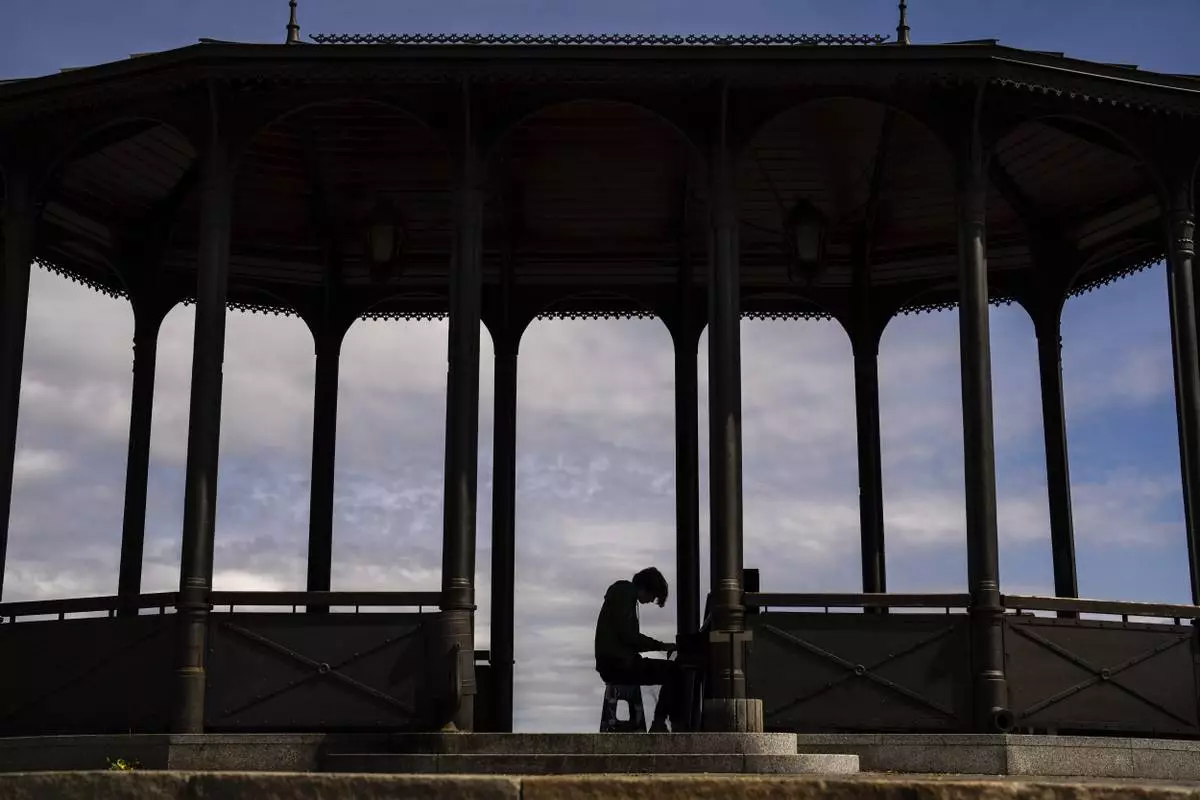A Georgia man scheduled to be executed next week has made the unusual decision not to file a clemency petition seeking to reduce his sentence and spare his life, his lawyers said Wednesday.
Ray Jefferson Cromartie, 52, is scheduled to be put to death Oct. 30 at the state prison in Jackson. He was convicted of malice murder and sentenced to die for the April 1994 slaying of 50-year-old convenience store clerk Richard Slysz in Thomasville, just north of the Florida line. Cromartie also was convicted of shooting and gravely injuring another convenience store clerk a few days earlier.
The State Board of Pardons and Paroles is the only authority in Georgia that can commute a death sentence. The board can reduce the sentence to life or life without the possibility of parole, according to its website. It typically holds a meeting the day before a scheduled execution to consider a clemency petition from a condemned inmate.
"Filing a clemency petition would have required Mr. Cromartie to ask for a sentence of life in prison without the possibility of parole, but there is simply too much doubt in his case to ask for this sentence in good faith," Cromartie attorney Shawn Nolan wrote in an emailed statement.
Cromartie insists he didn't shoot either clerk, and his lawyers have pushed for DNA testing of evidence to prove that. The state argues none of the DNA evidence he seeks would prove his innocence.
A judge last month declined Cromartie's requests for DNA testing and a new trial. Cromartie's lawyers have asked the Georgia Supreme Court to allow them to appeal and to stop his execution from happening while that's pending.
Cromartie's lawyers have also released two letters from Slysz's daughter, Elizabeth Legette.
In a June letter to state lawyers expressing support for DNA testing, she wrote: "My father's death was senseless. Executing another man would also be senseless, especially if he may not have shot my father."
In a letter to the state Supreme Court dated Oct. 16, the day the execution date was announced, Legette said the state's lawyers never responded and wrote, "Today I learned that the State has set a date to execute Mr. Cromartie without doing any testing. This is wrong, and I hope that you will take action to make sure that the testing happens."
Cromartie borrowed a handgun from his cousin on April 7, 1994, entered the Madison Street Deli that night and shot clerk Dan Wilson in the face, a Georgia Supreme Court summary of the case says.
Wilson suffered a severed carotid artery but survived. He couldn't describe the person who shot him, and footage from a surveillance camera wasn't clear enough to conclusively identify Cromartie.
A few days later on April 10, 1994, Cromartie and Corey Clark asked Thaddeus Lucas to drive them to a different store to steal beer, the summary says. Lucas parked nearby and the other two entered the Junior Food Store.
Cromartie shot Slysz twice in the head, the summary says. Unable to open the cash register, Cromartie and Clark fled after Cromartie grabbed two 12-packs of beer.
In both cases, Cromartie told others he had shot the clerks, the summary says.
Lucas and Clark both testified against him at his trial in September 1997. A jury found Cromartie guilty of malice murder, armed robbery, aggravated battery, aggravated assault and gun charges, and sentenced him to die.
Lucas and Clark pleaded guilty to lesser charges, served prison time and were released.
Cromartie's lawyers have asked for DNA testing on evidence, including: shell casings from both shootings; a knit cap and hooded sweatshirt found near the first shooting; a package of cigarettes found near Slysz's body; clothing samples from other possible shooters and Slysz.
But it's not likely the DNA results would lead to an acquittal or different verdict given the other evidence in the case, Southern Judicial Circuit Senior Judge Frank Horkan wrote in denying the request for DNA tests and a new trial. He also found that Cromartie failed to establish that his request for testing wasn't just meant to delay his execution, since he didn't request it "until all other avenues were closed."
Physical evidence shows Cromartie was at the Junior Food Store, but no physical evidence proves he shot Slysz or ever touched the gun, according to Cromartie's lawyers.
"Only by testing the DNA can Georgia ensure Mr. Cromartie's jury was correct to impose death because he was the shooter," Nolan said in the emailed statement. "Georgia officials must agree to DNA testing in this case before it's too late; otherwise, the state risks an unjust execution."
Cromartie would be the third prisoner executed in Georgia this year. The state says it uses an injection of the sedative pentobarbital to put inmates to death.










